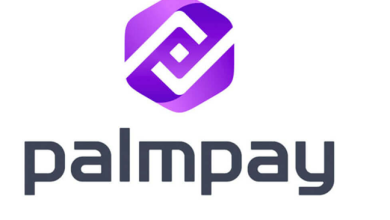JPMorgan to Accept Crypto-Backed Assets as Loan Collateral, Eyes Expansion into Nigerian Market
JPMorgan Chase is rewriting the rules of finance, now accepting crypto assets like Bitcoin ETFs as collateral for global loans.
The bank’s bold shift comes as it eyes Nigerian expansion and positions itself to lead in the next era of digital wealth.
In a groundbreaking shift that signals a deeper embrace of digital finance, JPMorgan Chase & Co., the largest bank in the United States, has announced plans to accept cryptocurrency-backed assets as collateral for loans. The new policy applies globally and spans across all client tiers, from individual investors to major institutional clients, further underscoring the bank’s evolving stance on digital assets.
Embracing the crypto frontier
The initiative will begin with BlackRock’s iShares Bitcoin Trust (IBIT), one of the most successful spot Bitcoin ETFs launched to date. JPMorgan intends to expand this framework to accommodate other approved crypto-based exchange-traded funds (ETFs) in the future. This move transforms what was previously a case-by-case offering into a formal service line, reflecting a broader industry momentum toward integrating crypto into traditional finance.
Importantly, JPMorgan will now factor cryptocurrency holdings into its wealth assessment protocols. Digital assets such as Bitcoin will be treated similarly to traditional forms of wealth like luxury vehicles, fine art, or stocks when evaluating a client’s eligibility for loans or credit lines.
Institutional demand and regulatory winds
This landmark decision comes amid surging institutional interest in cryptocurrency and a friendlier regulatory environment in the U.S. since President Donald Trump returned to office. His administration has taken a more supportive approach to digital innovation, encouraging major players like JPMorgan, Morgan Stanley, and others to explore expanded offerings in the crypto space.
Market developments have also contributed to JPMorgan’s move. Spot Bitcoin ETFs have experienced a meteoric rise since their launch in January 2024, now managing over $128 billion in assets. Bitcoin itself reached an all-time high of $111,980 in May 2025, reinforcing investor confidence in its long-term value.
JPMorgan’s mixed crypto philosophy
Despite this aggressive pivot, JPMorgan CEO Jamie Dimon has remained vocally skeptical of Bitcoin. At the bank’s May investor day, Dimon reiterated, “I’m not a fan of Bitcoin,” though he clarified his position by emphasizing client autonomy: “I don’t think we should smoke, but I defend your right to smoke. I defend your right to buy Bitcoin, go at it.”
This duality has long characterized JPMorgan’s approach to strategically investing in blockchain technology while maintaining caution toward certain crypto assets. The bank has collaborated with major crypto platforms like Coinbase and pioneered blockchain-based payment experiments, positioning itself at the forefront of financial technology.
Nigeria in focus: local expansion plans underway
In a related development, JPMorgan is actively seeking a Central Bank of Nigeria (CBN) merchant banking license.. The move is aimed at converting the bank’s long-established Lagos representative office into a fully operational branch.
If approved, the bank will be authorized to offer a wider range of services in Nigeria, including dollar-denominated loans tailored to large corporations. This expansion would allow JPMorgan to go beyond its current offerings of asset management and advisory services, marking a significant milestone in its African operations.
The bank has had a presence in Lagos since the 1980s and is currently overseen in West Africa by Dayo Olagunju. The shift to a full-fledged branch would deepen JPMorgan’s regional footprint and enable it to better serve Nigeria’s growing financial sector.
With regulatory conditions improving and institutional appetite for crypto assets increasing, JPMorgan’s twin moves to embrace crypto-backed lending and expand in Nigeria underscore its broader strategy to stay ahead in a rapidly transforming global financial landscape.



